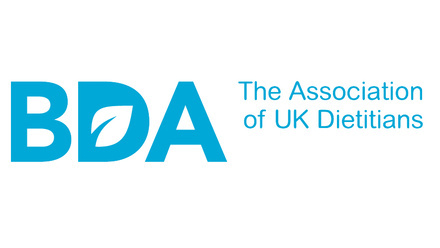By Dr Yvonne Jeanes, Principal Lecturer in Clinical Nutrition, University of Roehampton.
Polycystic Ovary Syndrome affects millions of women in the UK – around 1 in 10 women.4 (See refernces below) There is no cure, so treatment involves improving the presenting symptoms. Dr Yvonne Jeanes, specialises in the treatment of PCOS and provides an update on the latest evidence
Polycystic ovary syndrome (PCOS) is a common endocrine disorder associated with infertility, hyperandrogenism, obesity, cardiovascular disease (CVD) and type 2 diabetes . Weight management, through lifestyle modification, is the first line of treatment within international guidelines for treating women with PCOS.1,2,3
A recent survey of 1,012 women with PCOS, by Verity (the UK charity for women with PCOS), indicated an astonishing 90% felt they did not get ‘sufficient support from the NHS to help them deal with PCOS’ (unpublished data).
Within the dietetic resource Practice-based Evidence in Nutrition which is free for all BDA members, I authored the updated PCOS content published in 2015.6 Here, I summarised some of the key information incorporating the latest evidence available. The content published in PEN is more comprehensive and covers greater breadth.
Risks of developing type 2 diabetes and cardiovascular disease
There is consistent evidence that the prevalence of impaired glucose tolerance, gestational diabetes and type 2 diabetes is higher among women with PCOS than among BMI-matched women from the general population.7,8 Women with PCOS have more cardiovascular disease risk factors, including dyslipidemia, metabolic syndrome and compromised endothelial function compared with healthy controls.9,10 International guidelines recommend screening women with PCOS for cardiovascular disease risk factors and using an oral glucose tolerance test to screen for impaired glucose tolerance and type 2 diabetes in either all women with PCOS or those with a family history of diabetes, over the age of 40 years and/or those who are overweight/obese.1,2,3
Effects of weight loss on PCOS symptoms
There is a greater prevalence of overweight and obesity amongst women with PCOS.11 Meta-analyses have shown a 5-15% body weight loss among overweight/obese women with PCOS improves many PCOS symptoms inclusive of serum testosterone, glucose tolerance, hirsutism and ovulation.12,13,14 Small studies in women with PCOS have shown bariatric surgery resulted in marked improvement of multiple biochemical abnormalities, hirsutism, menstrual cycle regularity and improved fertility.15,16
Improving PCOS symptoms with diet
Evidence from relatively small, energy-restricted dietary intervention studies have generally found similar improvements in weight loss, fertility and symptom management of PCOS irrespective of the protein and carbohydrate content.17 A healthy energy-restricted diet and lifestyle that overweight/obese women with PCOS can follow may be one of the most important considerations in recommending a weight loss plan.
Lower glycaemic index dietary interventions have demonstrated improved insulin sensitivity in women with PCOS compared to a conventional healthy eating diet plan, independent to weight loss.18, 19,20 For lean women with PCOS an isocaloric lower GI diet has been shown to improve insulin sensitivity.19
PCOS and eating disorders
Small studies have indicated higher prevalence of PCOS in patients with eating disorders21,22 and disordered eating and bulimia nervosa was more common among women with PCOS23,24 – Michelmore et al. (2001) found similar prevalence.25 This evidence does not indicate that there is a causal relationship and it is clear more research is needed. It is important to be aware of the possibly higher prevalence of eating disorders in women with PCOS when interacting with women with PCOS and tailoring advice accordingly.
Can supplements help with symptoms?
Mny supplements have been proposed to have beneficial effects for women with PCOS, though there is very little research to support recommending any specifically for PCOS symptoms.
Vitamin D supplementation has been suggested as a deficiency has been associated with insulin resistance in women with PCOS, though clinical supplementation studies have provided inconsistent findings.6 Several small trials with omega 3 fatty acid supplementation (2.4-4 g/day for eight weeks) indicate beneficial effects on menstrual cyclicity, blood lipids, glucose and insulin levels in women with PCOS. Though any effects on reproductive hormones or outcomes have not been reported.6 A chromium picolinate supplementation trial indicated improvements in insulin sensitivity after 200g/day for three months among women with PCOS26, further trials are warranted to study any benefits in more detail. Cinnamon supplements of 1.5g/day have improved menstrual cyclicity in women with PCOS compared with placebo, however the results are limited by a high drop-out rate. Cinnamon extract is theorised to improve insulin sensitivity, however, there were no effects on insulin nor androgen levels.27 There are no clinical studies to support the use of herbal supplements agnus castus nor saw palmetto for women with PCOS. There is insufficient evidence to support recommending D-chiro-inositol or myo-inositol for women with PCOS. A meta-analysis indicated that supplementation with D-chiro-inositol or myo-inositol may improve insulin sensitivity, glucose tolerance, menstrual regularity and ovulation rate among women with PCOS.28 However, D-chiro-inositol has been reported to worsen the quality of oocytes and the safety of inositol has not been adequately studied.29
First-line treatment
For overweight/obese women with PCOS, weight management through lifestyle modification is the first line treatment. There is evidence for the beneficial effects of weight loss, however how it is achieved is very much centred on the individual. There is evolving evidence for the beneficial effects of a lower glycaemic load for women with PCOS. To date there is insufficient evidence to support recommending supplements specific to PCOS.
Dr Yvonne wrote a chapter on polycystic ovary syndrome for the 5th edition of the Manual of Dietetic Practice.
References:
- Royal College of Obstetricians and Gynaecologists (RCOG).Long-term consequences of polycystic ovary syndrome. 2014 Green-top Guideline No. 33
- National Institute for Health and Care Excellence (NICE)Clinical Knowledge Summary: PCOS. 2013
- Legro RS, Arslanian SA, Ehrmann DA, Hoeger KM, Murad MH, Pasquali R, Welt CK; Endocrine Society. Diagnosis and treatment of polycystic ovary syndrome: an Endocrine Society clinical practice guideline. 2013 J Clin Endocrinol Metab. 98(12):4565-92.
- March WA, Moore VM, Willson KJ, Phillips DI, Norman RJ, Davies MJ. (2010) The prevalence of polycystic ovary syndrome in a community sample assessed under contrasting diagnostic criteria. Hum Reprod. 25(2):544-51.
- ESHRE and ASRM-Sponsored PCOS Consensus Workshop Group (2004). Revised 2003 consensus on diagnostic criteria and long-term health risks related to polycystic ovary syndrome. Fertility and Sterility; 81:19-25.
- Jeanes Y PCOS Knowledge pathway Practice-Evidence based Nutrition 2015
- Moran LJ, Misso ML, Wild RA, Norman RJ. Impaired glucose tolerance, type 2 diabetes and metabolic syndrome in polycystic ovary syndrome: a systematic review and meta-analysis. Hum Reprod Update. 2010:16(4):347-63.
- Gambineri A, Patton L, Altieri P, Pagotto U, Pizzi C, Manzoli L, Pasquali R. Polycystic ovary syndrome is a risk factor for type 2 diabetes: results from a long-term prospective study. Diabetes. 2012; 61(9):2369-74
- Wild RA, Rizzo M, Clifton S, Carmina E. Lipid levels in polycystic ovary syndrome: systematic review and meta-analysis. Fertil Steril. 2011 95(3):1073-9.
- Toulis KA, Goulis DG, Mintziori G, Kintiraki E, Eukarpidis E, Mouratoglou SA, et al. Meta-analysis of cardiovascular disease risk markers in women with polycystic ovary syndrome. Hum Reprod Update. 2011 17(6):741-60.
- Lim SS., Davies MJ., Norman RJ., Moran LJ. Overweight, obesity and central obesity in women with polycystic ovary syndrome: a systematic review and meta-analysis. Hum Reprod Update 2012: 18(6):618–637
- Haqq L, McFarlane J, Dieberg G, Smart N. The effect of lifestyle intervention on body composition, glycaemic control and cardio-respiratory fitness in women with polycystic ovarian syndrome: A systematic review and meta-analysis. Int J Sport Nutr Exerc Metab. In press.
- Haqq L, McFarlane J, Dieberg G, Smart N. Effect of lifestyle intervention on the reproductive endocrine profile in women with polycystic ovarian syndrome: a systematic review and meta-analysis. Endocr Connect. 2014; 28;3(1):36-46.
- Nybacka Å, Carlström K, Ståhle A, Nyrén S, Hellström PM, Hirschberg AL. Randomized comparison of the influence of dietary management and/or physical exercise on ovarian function and metabolic parameters in overweight women with polycystic ovary syndrome. Fertil Steril. 2011 96(6):1508-13.
- Jamal M, Gunay Y, Capper A, Eid A, Heitshusen D, Samuel I. Roux-en-Y gastric bypass ameliorates polycystic ovary syndrome and dramatically improves conception rates: a 9-year analysis. Surg Obes Relat Dis. 2012;8(4):440-4.
- Eid GM, Cottam DR, Velcu LM, Mattar SG, Korytkowski MT, Gosman G, et al. Effective treatment of polycystic ovarian syndrome with Roux-en-Y gastric bypass. Surg Obes Relat Dis. 2005;1(2):77-80.
- Moran LJ, Ko H, Misso M, Marsh K, Noakes M, Talbot M, Frearson M, Thondan M, Stepto N, Teede HJ. Dietary composition in the treatment of polycystic ovary syndrome: a systematic review to inform evidence-based guidelines. J Acad Nutr Diet. 2013; 113(4):520-45.
- Marsh K, Steinbeck KS, Atkinson FS, Petocz P Brand-Miller JC. Effect of a low glycaemic index compared with a conventional healthy diet on polycystic ovary syndrome. Am J Clin Nutr. 2010; 92(1), 83-92.
- Barr S, Reeves S, Sharp K, Jeanes YM. An isocaloric low glycemic index diet improves insulin sensitivity in women with polycystic ovary syndrome. J Acad Nutr Diet. 2013;113(11):1523-31.
- Goss AM, Chandler-Laney PC, Ovalle F, Goree LL, Azziz R, Desmond RA et al. Effects of a eucaloric reduced-carbohydrate diet on body composition and fat distribution in women with PCOS. Metabolism. 2014; 63(10):1257-64
- Morgan J, Scholtz S, Lacey H, Conway G. The prevalence of eating disorders in women with facial hirsutism: an epidemiological cohort study. Int J Eat Disord. 2008; 41(5):427-31.
- Naessen S, Carlstrom K, Garoff L, Glant R, Hirschberg AL. Polycystic ovary syndrome in bulimic women – an evaluation based on the new diagnostic criteria. Gynecol Endocrinol. 2006;22(7):388-94.
- Hart K, Evill R, Calvert A, Hodgson J, Gibson L, Jeanes Y. Eating behaviours in women with polycystic ovary syndrome and healthy comparators. J Hum Nutr Diet. 2012; 25 (6) 604
- McCluskey S, Evans C, Lacey JH, Pearce JM, Jacobs H. Polycystic ovary syndrome and bulimia. Fertil Steril. 1991;55(2):287-91.
- Michelmore KF, Balen AH, Dunger DB. Polycystic ovaries and eating disorders: are they related? Hum Reprod. 2001;16(4):765-9.
- Amooee S, Parsanezhad ME, Ravanbod Shirazi M, Alborzi S, Samsami A. Metformin versus chromium picolinate in clomiphene citrate-resistant patients with PCOs: A double-blind randomized clinical trial. Iran J Reprod Med. 2013 ;11(8):611-8
- Kort DH, Lobo RA. Preliminary evidence that cinnamon improves menstrual cyclicity in women with polycystic ovary syndrome: a randomized controlled trial. Am J Obstet Gynecol. 2014 ;211(5):487-8.
- Tang T, Lord JM, Norman RJ, Yasmin E, Balen AH. Insulin-sensitising drugs (metformin, rosiglitazone, pioglitazone, D-chiro-inositol) for women with polycystic ovary syndrome, oligo amenorrhoea and subfertility. Cochrane Database Syst Rev. 2012;16;5:CD003053
- Isabella R, Raffone E. Does ovary need D-chiro-inositol? J Ovarian Res. 2012 15;5(1):14.
- Lim SS, Norman RJ, Davies MJ, Moran LJ. The effect of obesity on polycystic ovary syndrome: a systematic review and meta-analysis. Obes Rev. 2013;14(2):95-109.
- American Diabetes AssociationPosition statement: Standards of Medical Care in Diabetes 2012. Diabetes Care 2012;35: S1-S63
- Tehrani HG, Mostajeran F, Shahsavari S. The effect of calcium and vitamin D supplementation on menstrual cycle, body mass index and hyperandrogenism state of women with poly cystic ovarian syndrome. J Res Med Sci. 2014;19(9):875-80.
- Asemi Z, Foroozanfard F, Hashemi T, Bahmani F, Jamilian M, Esmaillzadeh A. Calcium plus vitamin D supplementation affects glucose metabolism and lipid concentrations in overweight and obese vitamin D deficient women with polycystic ovary syndrome. Clin Nutr. 2015 Aug;34(4):586-92
- Raja-Khan N, Shah J, Stetter CM, Lott ME, Kunselman AR, Dodson WC, Legro RS. High-dose vitamin D supplementation and measures of insulin sensitivity in polycystic ovary syndrome: a randomized, controlled pilot trial. Fertil Steril. 2014 101(6):1740-6.
- Ardabili HR, Gargari BP, Farzadi L. Vitamin D supplementation has no effect on insulin resistance assessment in women with polycystic ovary syndrome and vitamin D deficiency. Nutr Res. 2012;32(3):195-201.
- Thomson RL, Spedding S, Buckley JD. Vitamin D in the aetiology and management of polycystic ovary syndrome. Clin Endocrinol (Oxf). 2012 Sep;77(3):343-50 Abstract available from: http://www.ncbi.nlm.nih.gov/pubmed/22574874
- Nadjarzadeh A, Dehghani Firouzabadi R, Vaziri N, Daneshbodi H, Lotfi MH, Mozaffari-Khosravi H. The effect of omega-3 supplementation on androgen profile and menstrual status in women with polycystic ovary syndrome: A randomized clinical trial. Iran J Reprod Med. 2013 Aug;11(8):665-72. Abstract available from: http://www.ncbi.nlm.nih.gov/pubmed/24639805
- Mohammadi E, Rafraf M, Farzadi L, Asghari-Jafarabadi M, Sabour S. Effects of omega-3 fatty acids supplementation on serum adiponectin levels and some metabolic risk factors in women with polycystic ovary syndrome. Asia Pac J Clin Nutr. 2012;21(4):511-8. Abstract available from: http://www.ncbi.nlm.nih.gov/pubmed/23017309
- Phelan N, O'Connor A, Kyaw Tun T, Correia N, Boran G, Roche HM, et al. Hormonal and metabolic effects of polyunsaturated fatty acids in young women with polycystic ovary syndrome: results from a cross-sectional analysis and a randomized, placebo-controlled, crossover trial. Am J Clin Nutr. 2011 Mar; 93(3):652-62. Abstract available from: http://www.ncbi.nlm.nih.gov/pubmed/21270384
- Cussons AJ, Watts GF, Mori TA, Stuckey BG. Omega-3 fatty acid supplementation decreases liver fat content in polycystic ovary syndrome: a randomized controlled trial employing proton magnetic resonance spectroscopy. J Clin Endocrinol Metab. 2009 Oct; 94(10):3842-8. Abstract available from: http://www.ncbi.nlm.nih.gov/pubmed/19622617
- Unfer V, Carlomagno G, Dante G, Facchinetti F. Effects of myo-inositol in women with PCOS: a systematic review of randomized controlled trials. Gynecol Endocrinol. 2012 Jul [cited 2014 Oct 16];28(7):509-15. Abstract available from: http://www.ncbi.nlm.nih.gov/pubmed/22296306
- Sacchinelli A, Venturella R, Lico D, Di Cello A, Lucia A, Rania E et al. The Efficacy of Inositol and N-Acetyl Cysteine Administration (Ovaric HP) in Improving the Ovarian Function in Infertile Women with PCOS with or without Insulin Resistance. Obstet Gynecol Int. 2014;2014;141020. Epub 2014 Apr 30. Abstract available from: http://www.ncbi.nlm.nih.gov/pubmed/24876842
- Pizzo A1, Laganà AS, Barbaro L. Comparison between effects of myo-inositol and D-chiro-inositol on ovarian function and metabolic factors in women with PCOS. Gynecol Endocrinol. 2014 Mar; 30(3):205-8.







